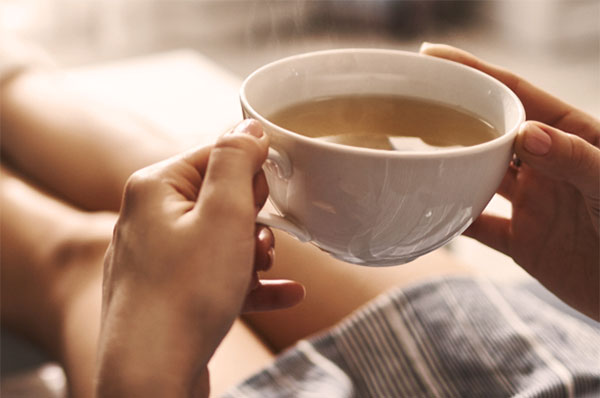#BeWellUGA at Home: Take Time for Tea
Tea has been around for thousands of years and can be linked back to ancient times. Today, billions of pounds of tea is sold in the United States each year, including sweet tea, of course!

What exactly is tea, and where does it come from?
The majority of teas, with the exclusion of herbal teas, come from the Camellia sinensis plant, and the caffeine amount has to do with how the plant is processed. There are four widely known and consumed types:
- White tea has the least amount of caffeine. It has sweet and rounded flavors making it soft and subtle.
- Green tea tastes earthy.
- Oolong tea is smooth and has a medium-bodied flavor.
- Black tea has the most caffeine. It has a robust flavor of malty and earthy notes.
What makes herbal teas different?
Herbal teas are composed of natural herbs and/or fruits. They have no caffeine and are great to drink for a moment of relaxation, a sense of calm, or even as part of your daily routine–to start the day or at bedtime. Want to try an herbal tea that will help you feel calm and refreshed? Some good choices are chamomile, hibiscus, lavender, elderberry, jasmine rose, and citrus.
Bonus! Tea is full of antioxidants and, depending on ingredients, can support the body’s daily processes.
How to make the perfect cup of tea
Add one teaspoon of loose leaf tea into a tea infuser, and then steep that into 8 ounces of hot water. Steep your tea at the following temperatures:
- Herbal tea: 212 degrees Fahrenheit, 5-8 minutes
- White tea: 175-180 degrees Fahrenheit, 4-6 minutes
- Green tea: 150-160 degrees Fahrenheit, 2-4 minutes
- Oolong Tea: 190 degrees Fahrenheit, 5-8 minutes
- Black tea: 212 degrees Fahrenheit, 5-8 minutes
Try adjusting the steep time for a milder or bolder, more robust cup of tea.
If you want a second cup of tea, most tea leaves can be re-steeped if done shortly after the first cup is made. However, be mindful that bolder teas, including black tea, can actually taste bitter or stronger with re-steeping, and doing so is not recommended.
If you choose to re-steep tea, take the tea leaves out of your cup right after the first steep. Steep again shortly after the first cup. Never reuse steeped tea leaves the next day.
Making a cup of tea to best support well-being means ensuring you are consuming quality tea. Many lower-cost teas are made from the dustings of the Camellia sinensis plant and will have a powdery look when purchased. Most loose leaf tea or bagged individual servings of loose leaf teas contain fuller parts of the plant, dried fruit, and herbs which will provide more of the benefits (antioxidants) found when drinking tea.
Happy tea drinking!
Check out more FREE virtual wellness and prevention classes, clinics, and tools hosted by the University Health Center at BeWellUGA at Home, brought to you by the UHC Health Promotion Department.
Written by: Liana Natochy, Alcohol and Other Drugs Education Coordinator, The Fontaine Center / UHC Health Promotion
